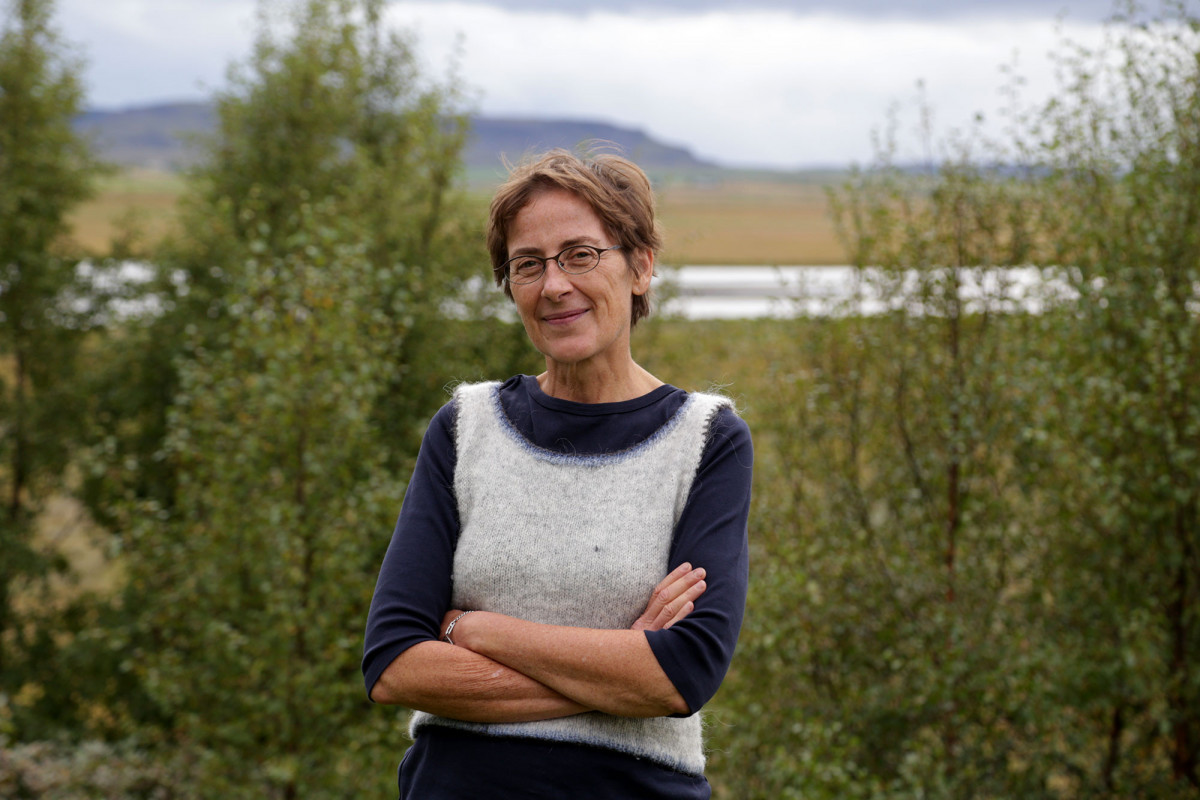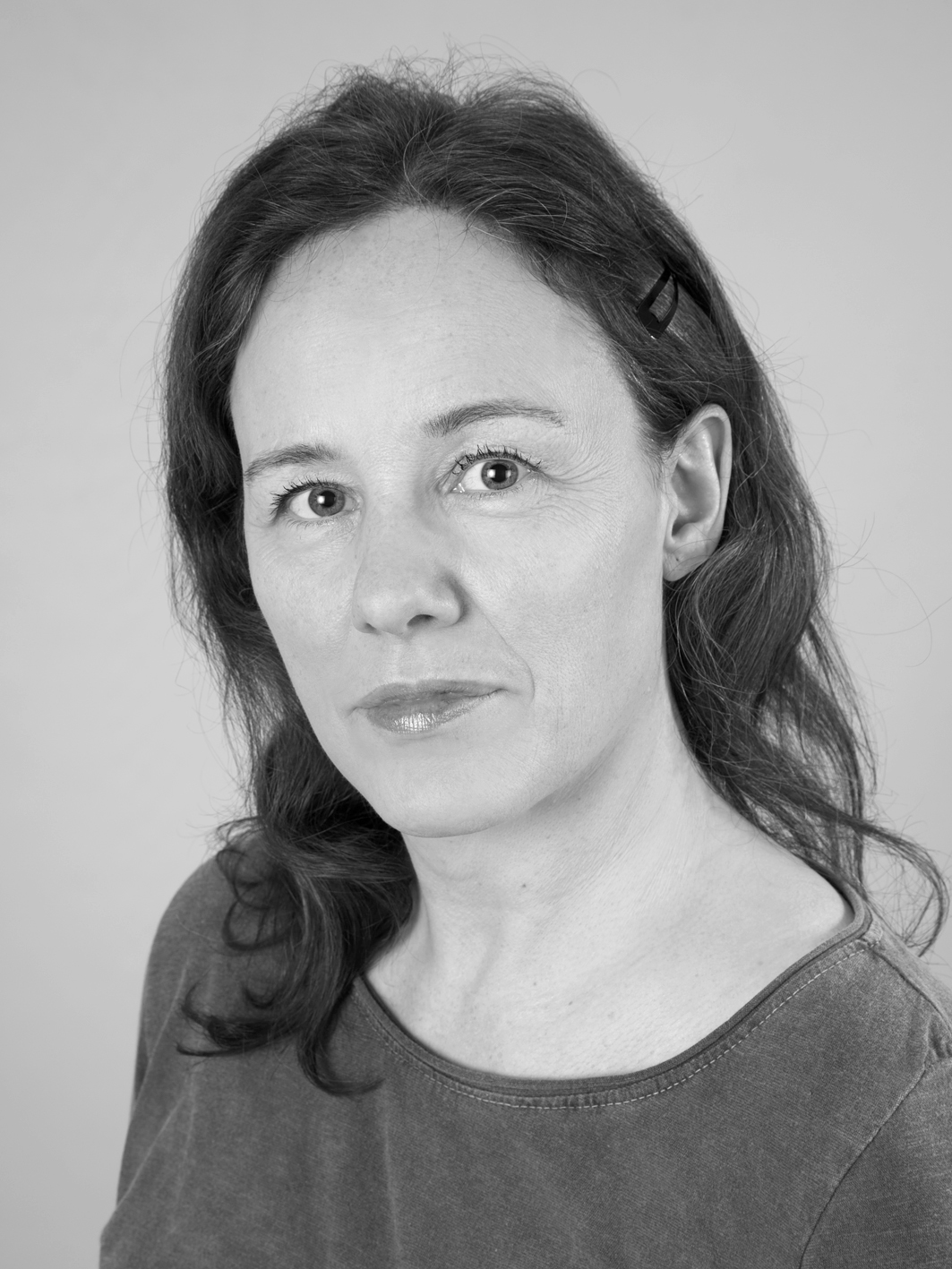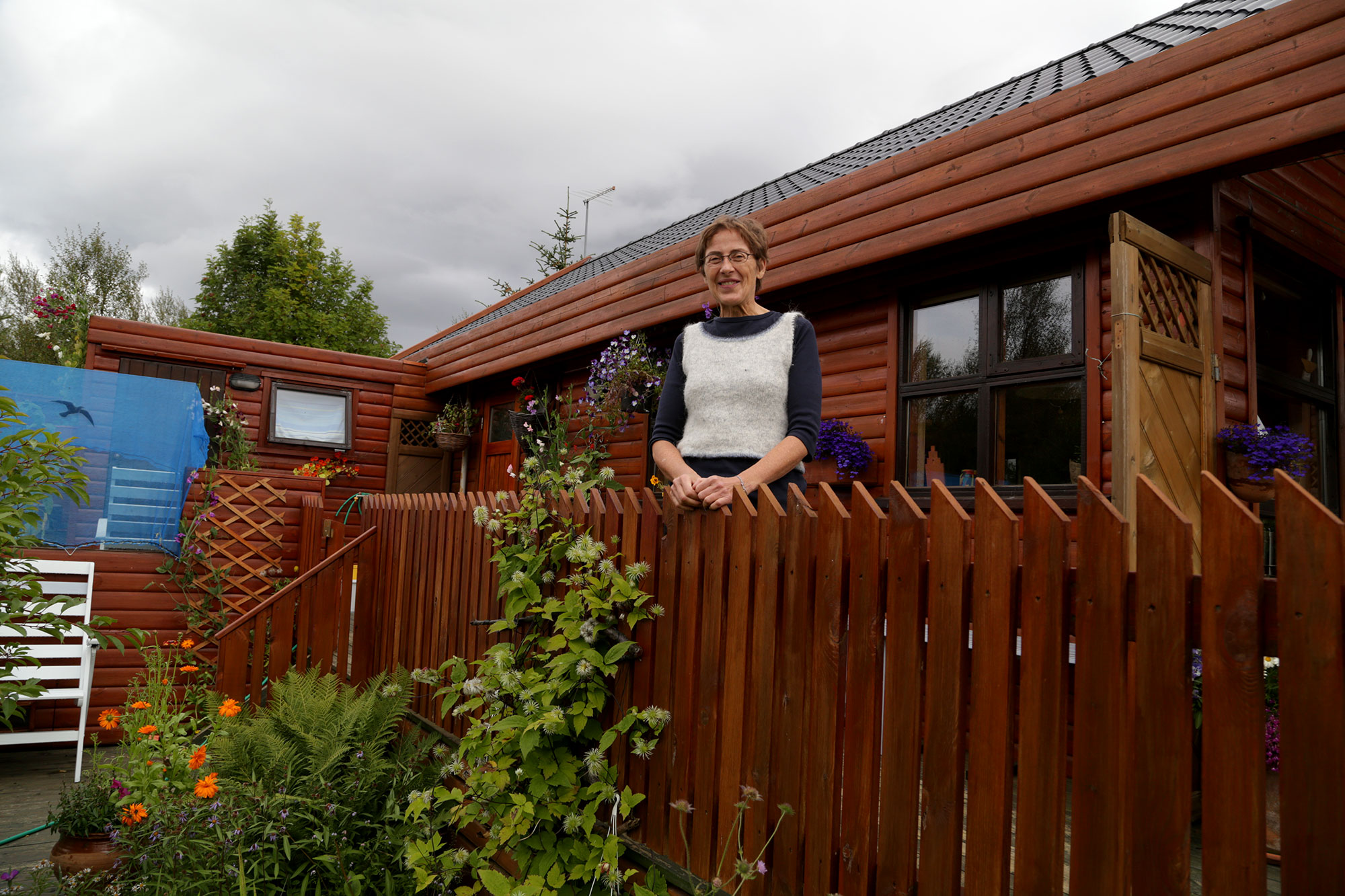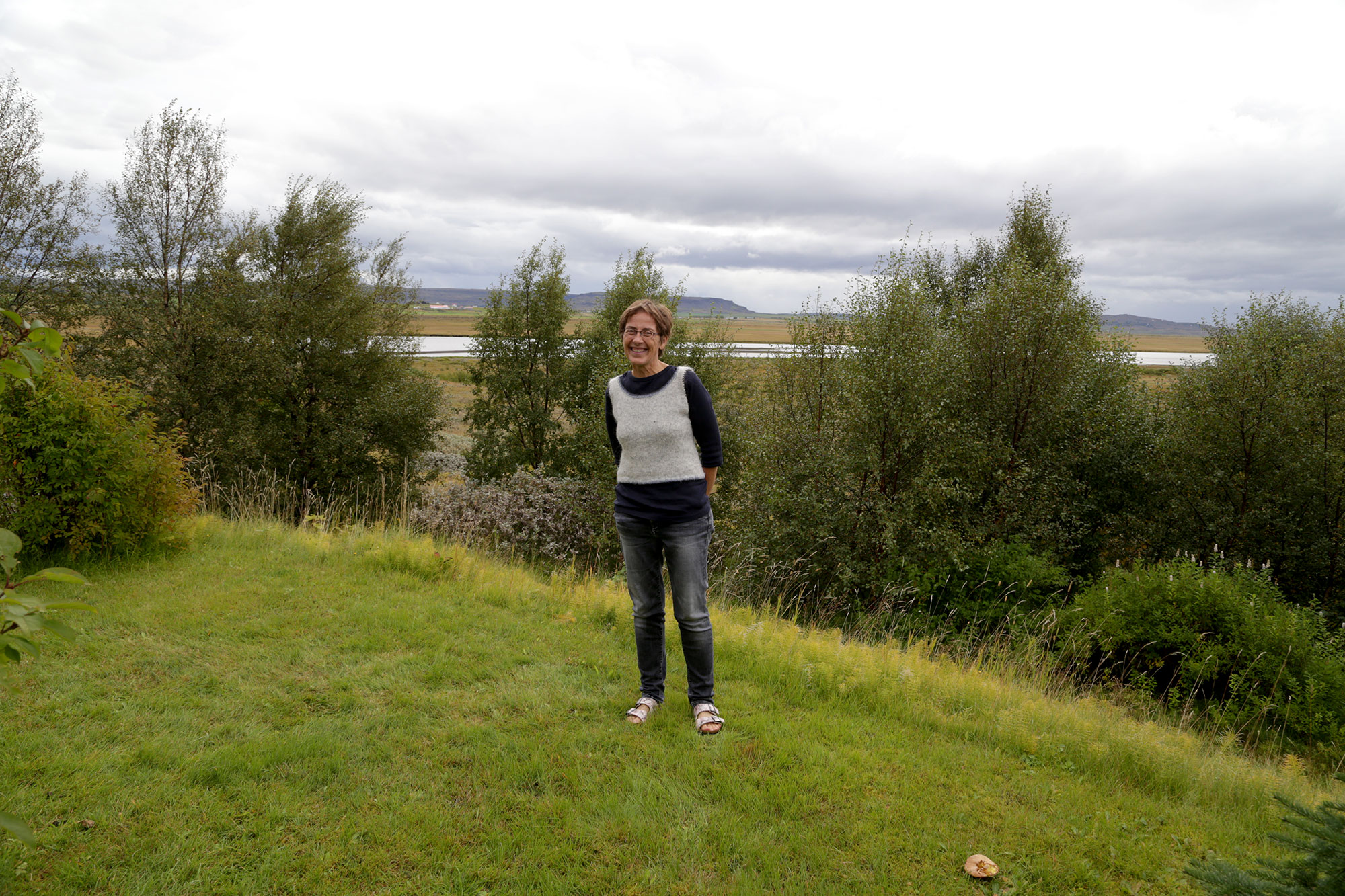- Pytania & odpowiedzi
- Filmy edukacyjne
- Stowarzyszenie Krajowych Funduszy Emerytalnych
- W jaki sposób wybieramy fundusz emerytalny?
- Jakie prawa otrzymam poprzez wpłacanie składek na fundusz emerytalny?
- Dlaczego muszę płacić składki na fundusz emerytalny?
- W jakiej wysokości składki wpłacają osoby pracujące na własny rachunek?
- Dodatkowy fundusz emerytalny
- Gdzie znajdę informacje na temat praw w funduszu emerytalnym?
- Fundusze emerytalne
- Wiadomości & artykuły
Birgitta Braun’s rude awakening: "These systems do not talk together"
10.01.2018
Fréttir|Fréttir - PL (Þýða)

Birgitta Braun’s rude awakening:
"These systems do not talk together"
"The systems of social security and pension funds in Iceland do not talk together, and this is even worse between countries. Furthermore, there is a difference how authorities view people’s rights, and how they transfer or do not transfer internally between the Nordic states. We thus run into this, time after time, how the 'Nordic welfare system' is not necessarily the shield of rights that people think will protect them in a pinch. In fact there are many differences between one Nordic state and another."
Sigrídur Hanna Ingólfsdóttir, a social worker at the Organisation of Disabled in Iceland, gets many cases about diminished pension payments because of previous domicile in another country. Only a very small part of disability recipients in this position get payments from foreign communication centres of Iceland's State Social Insurance Administration. Institutions in Iceland sometimes define these payments as a basic pension. In other instances, they are defined as pension fund income. The result is reduction of Social Security payments in Iceland in the same manner as pension fund income from Icelandic pension funds is reduced.
Issues of this kind multiply the faster people move between countries, with accompanying changes of residence. People then run up against the discovery that rules differ on the pension age and disability assessments. The right to a pension is observed in one country but not in another.
100% disability because of house mould
Birgitta María Braun, MD, moved to Iceland from Germany. She ran into many walls when she started pursuing rights that she thought she had in Iceland and in Germany, following an automobile accident in Finland in 2003 when she was assessed to be 50% disabled. Then in 2016, she was assessed to be 75% disabled after a serious illness that doctors traced to house mould and associated poisoning.
Birgitta learned much from her bitter experience, and she collected information others may find useful. This information not least regards the different rights and the ways Iceland's and Germany's Social Security and pension systems process rights. In addition, the information is about systems that do not talk together. She and other Germans living in Iceland are going to set up an accessible information and training database on these matters. They will also put up a website or Facebook page to collect more stories from people illustrating these issues and disseminate their knowledge and experiences for the benefit of others.
 Sigrídur Hanna, a social worker at the Organisation of Disabled in Iceland, worked for some time in Germany and is therefore well acquainted with its Social Security and pension funds system. She has assisted Birgitta in her rights struggle, and a conversation with Birgitta in a summer house in Iceland triggered this article on "systems that do not talk together". Her history of accidents, disease and tribulations is, in fact, material for an entire book. Here we will condense it into snapshots.
Sigrídur Hanna, a social worker at the Organisation of Disabled in Iceland, worked for some time in Germany and is therefore well acquainted with its Social Security and pension funds system. She has assisted Birgitta in her rights struggle, and a conversation with Birgitta in a summer house in Iceland triggered this article on "systems that do not talk together". Her history of accidents, disease and tribulations is, in fact, material for an entire book. Here we will condense it into snapshots.
Domicile percentage "frozen"
Birgitta Braun is a psychiatrist, specializing in psychodynamic psychotherapy . She began her studies in Germany but completed both these specialties in Iceland. She moved to Iceland when she was 39 years old. She was a citizen of both Germany and Iceland and was a department physician at University Hospital of Iceland when a car in which she was a passenger in Finland got into an accident. An assessment concluded she was 50% disabled due to sprained tendons, a slipped disc and other consequences of the accident.
Birgitta had been healthy and engaged in sports, but there her life changed instantly.
"I was a working physician and often collaborated with social workers, but I knew exactly nothing about my own rights or the Social Security and pension funds system in Iceland. I suspect that doctors know very little about the systems that relate so very closely to their work.
After the accident, I reached only 60% work capacity and got very little disability because the wages of a physician were too high. That was how it was. Of course, I paid large sums of money in taxes to the State, but the rights at the State Social Insurance Administration were also cut. That is how the system works.
A full base pension in the insurance system here assumes residence in Iceland from age 16 to 67. Those moving here need continuous residence for 40 years to acquire full rights, but if their residence is shorter, the acquired rights are a certain percentage as defined in a regulation and increase until reaching the maximum. No one pointed out to me that, as of the time disability was first assessed, the State Social Insurance Administration "froze" my percentage of residence. Neither did anyone point out to me that I had a right to disability from my pension fund in Iceland.”
 Extensive mould in dwelling – isolation in summer cottage
Extensive mould in dwelling – isolation in summer cottage
The first two years after the accident, Birgitta worked as a physician at the Cancer Society's screening centre. In 2006 she began working part-time in University Hospital of Iceland.
In 2007 she started feeling indisposed, but no explanation for this was found. Physical symptoms developed after she moved in with her then husband, and they became progressively worse. Her immune system was overactive and disturbed, resulting in allergies/intolerances to innumerable kinds of food and environmental substances. Her body reacted violently: rashes and other skin disorders, breathing difficulties, oedema, pains, insomnia, lack of stamina and chronic fatigue, digestive and cardiac disturbances, thyroid disease, etc.
The spring of 2014, it came to light that mould permeated Birgitta's house, especially in her study. The physician had become very sick and required medical help. However, more often than not she was anxious about meeting her colleagues. The reason was that she was either not taken seriously, or her colleagues were at a loss. No one managed to diagnose and understand what was wrong. There were therefore no remedies to reduce her suffering at all.
After discovery of mould in Birgitta's house, she moved to the summer cottage where she still stays. The illness and strain took their toll on her marriage. The strain of the ensuing divorce delayed her recovery in addition to everything else.
In the fall of 2014, a doctor at University Hospital of Iceland finally linked her illness to house mould. He started the limited testing that was then available for exposure to house mould and applied for rehabilitation for Birgitta. No further diagnosis, advice or treatment was available.
The German system is based on premiums, not residence
Birgitta was still linked to the system in Germany and decided to seek treatment there. It would have been possible to do this through the International Department of Iceland Health Insurance, but this would have taken a long time, and she could not wait because of her health.
Birgitta paid her own way to Germany and was fortunate enough to get an appointment quickly with a specialist and without having to pay for the assistance. For example, she got a diagnosis of her skin and thyroid diseases, good advice, and tips on reading material so she could organise her "own treatment" at home. She was never admitted to hospital in Iceland. However, in January 2015, she got space in the Icelandic Nature Health Society in Hveragerdi. The Iceland Physicians Association got her funds to pay for part of her stay from their family and grants fund.
"The people in Hveragerdi told me at the start that I was welcome to general rehabilitation and diverse support treatment. I was often jokingly called ‘the worst allergy patient’ people there had ever met. I stayed there for 12 weeks in 2015.
Staying in Hveragerdi when I needed it was very important to me, as well as the way the professionals addressed a complicated disease that did not fit into the diagnosis system. There I got shelter, hope that I would survive the shipwreck and support to keep fighting the battle.
Almenni lífeyrissjóðurinn recognised me as 100% disabled in 2014, and paying into that fund while I was a working physician has saved me.
On the other hand, the State Social Insurance Administration refused to raise my disability assessment from 2003, and it did not recognise full disability until 2016 after two years of making a big fuss and filing complaints. That delay caused me additional damage because the German State Social Insurance Administration does not pay disability unless the person involved is assessed to be at least 75% disabled by a State Social Insurance Administration that is a foreign communication centre. I therefore lost payments from abroad that I would otherwise have gotten for two years.
I later realised that I would have been better off applying for disability in Germany in 2014 even though the application would have been rejected because of the State Social Insurance Administration’s negative position on raising my disability percentage. However, I knew much less then than I know now. I would have needed a good adviser or agent to present my case at this difficult time.
The German Social Security System bases rights on paid premiums, not residence. I therefore had rights from working there and was rightfully entitled to get this compensation as a base pension to compensate for reduction of disability in Iceland, based on residence. The matter did not prove to be so simple. The State Social Insurance Administration assesses German disability compensation as pension income, not a base pension. It then reduces its compensation accordingly.”
 Guests got into the hot pot and changed clothes
Guests got into the hot pot and changed clothes
Birgitta Braun's story is heart-breaking and moving. Her overactive and disturbed immune system literally forced her to isolate herself in a summer cottage in South Iceland. As a physician, she tried to cure herself, with the results now before us. She can now even foresee the possibility of being able to work in her field in 2018.
The physical reaction to house mould is so drastic that none of her possessions in the house where she lived in the south may go into the summer cottage. No clothes, no medical equipment, no musical instruments, no books, no photo albums, no CDs or DVDs. Nothing. These things of hers are therefore worthless and will not be compensated.
When things were at their worst, she was so sensitive to the environment that she had people visiting her at the summer cottage start by getting into the hot pot and changing clothes before they went inside.
"It helped a great deal that I am a physician and conscientiously recorded the medical history, measured, wrote, and photographed. I was, to say the least, not tested much, and the follow-up was limited. I asked myself what the reason was. Did it matter that I am a physician? Was it too difficult to categorise the disease by specialties? Does this system of ours simply not work better than this?
At any rate, the conclusion was unacceptable, whatever the explanation was. There was simply nothing to do except work this out myself as well as I could!
Of course, I now know a great deal about the disease that I did not know before, but I also know a great deal about the Social Security Administration and pension fund matters here in Iceland and in Germany that I did not know before. It was up to me to simply spend immeasurable time figuring out the systems and trying to understand how they interacted or, rather, how they did NOT interact.
The International Department of the Social Security Administration did not know how the German system differs from the Icelandic system, and I got no answers, except to some questions, at my pension fund and Icelandic Health Insurance.
Now, the goal is to work through all this material and create an information and experience database. There are six of us Germans living in Iceland who intend to launch the project this winter, not to become consultants but rather to assist others in getting answers from Icelandic reality to questions that arise."

